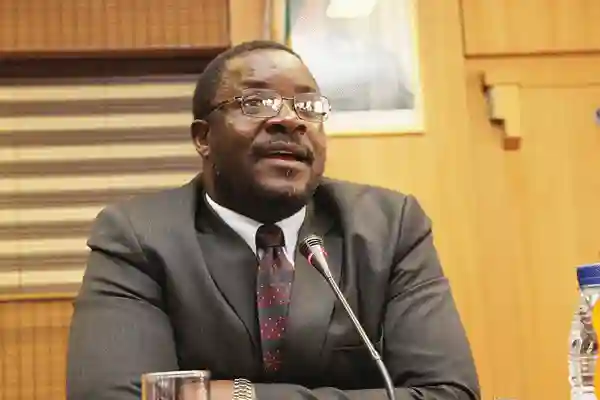George Charamba, the spokesperson for President Emmerson Mnangagwa, blames court-related court cases for the voting delays experienced in certain parts of the country, particularly Harare and Bulawayo.
Voting was delayed by at least two hours while voters at polling stations including Cold Comfort and Warren Park had not started voting around 2000 hours. At other polling stations including Kuwadzana 3 Primary School, voting was suspended in the afternoon after the station had reportedly run out of local government ballot papers.
Charamba says open-ended legal recourse allows litigation to interfere with the voting process, causing instability and uncertainty in election management. He said:
DISTILLING TODAY’S VOTING CHALLENGES FOR IMPROVED ELECTIONS MANAGEMENT SYSTEM IN FUTURE:
Well before today’s polling delays, an opinion was already forming in the governing system that the whole architecture of our Electoral System needs revisiting and reforming. Foremost is the open-ended legal recourse which allows litigation right into the voting booth, in the process creating instability and uncertainty to the whole Election Management. It is significant that suits kept flying right up to a day or two before Zimbabwe went to the vote. That cannot be desirable at all, given ante-ceding processes many of which are time-honoured. Especially noteworthy is litigation around boundaries and voter registration, both of them critical to the printing of ballot papers. It is very clear harmonised elections run on at least three ballot papers, each of which has different time/printing demands. The law must set closure to litigation, to allow printing and other processes to start well on time.
Significantly, urban areas have dense local government structures, compared to rural areas. Where party support is perceived in a rural-urban binary, delays following this basic symmetry tend to spawn self-feeding narratives of conspiracy to induce deliberate voter suppression, even where and when delays have rational, nay predictable explanations! The open-ended law is largely to blame, begging for clear timelines on litigation that creates a seamless zone for administrative and production activities. This area demands very urgent attention, soon after polls.
Some observers argued that court proceedings cannot be blamed considering that the Zimbabwe Electoral Commission (ZEC) recently announced that it had printed enough ballot papers. ZEC last week announced the printing of the following quantities for each election category:
- Presidential Election: 7,126,600 ballot papers
- National Assembly Elections: 7,098,750 ballot papers
- Council Elections: 6,861,650 ballot papers
ZEC’s chief elections officer, Mr Utloile Silaigwana, explained the reasons for the variation in the number of ballot papers printed for each election category. He stated that for the National Assembly election, the passing of an independent candidate in the Gutu West National Assembly constituency led to a postponement. In the local authority election, elections won’t be held in 91 wards due to unopposed candidates and the unfortunate demise of four candidates. These elections will be conducted at a later date.

